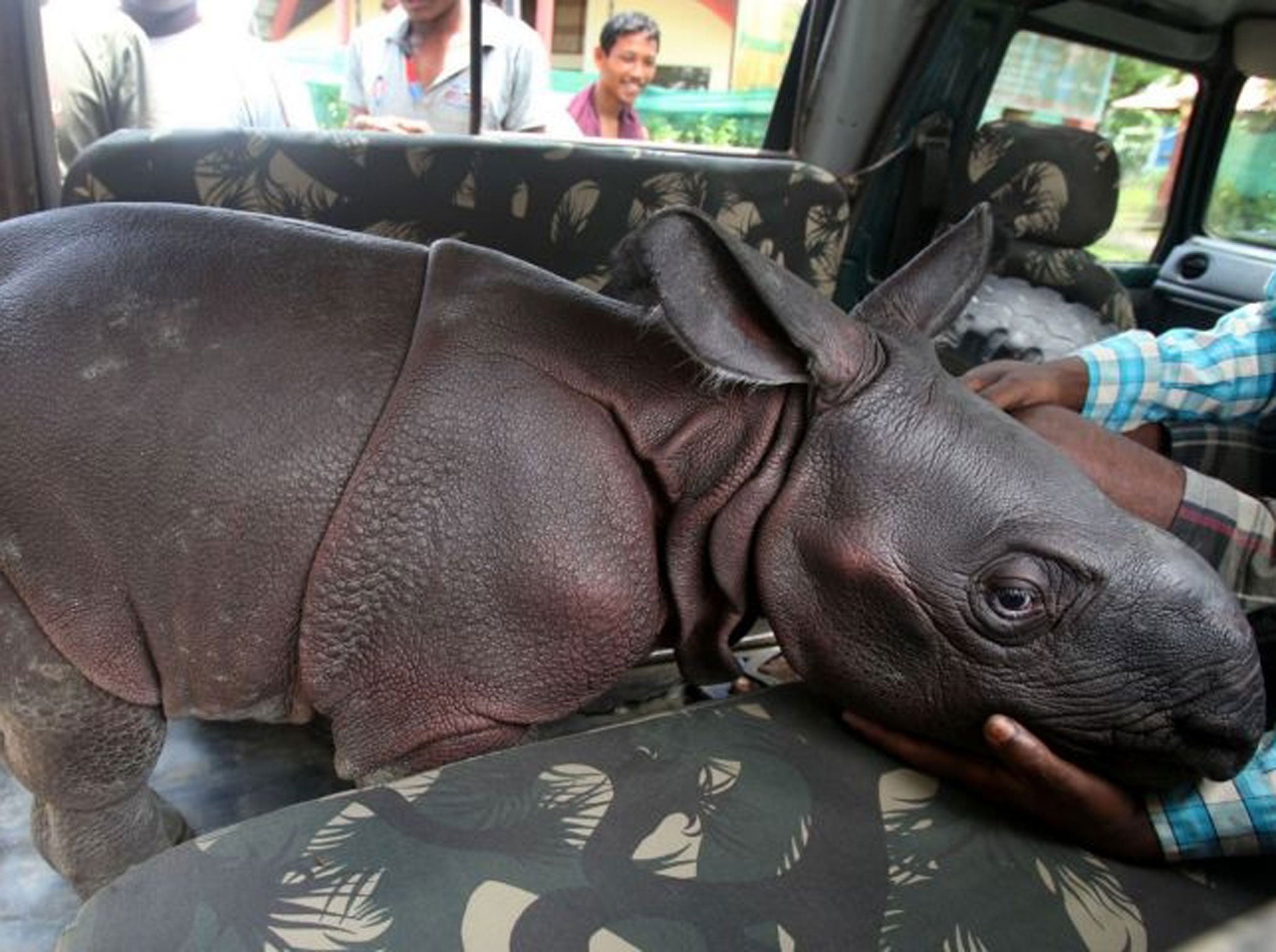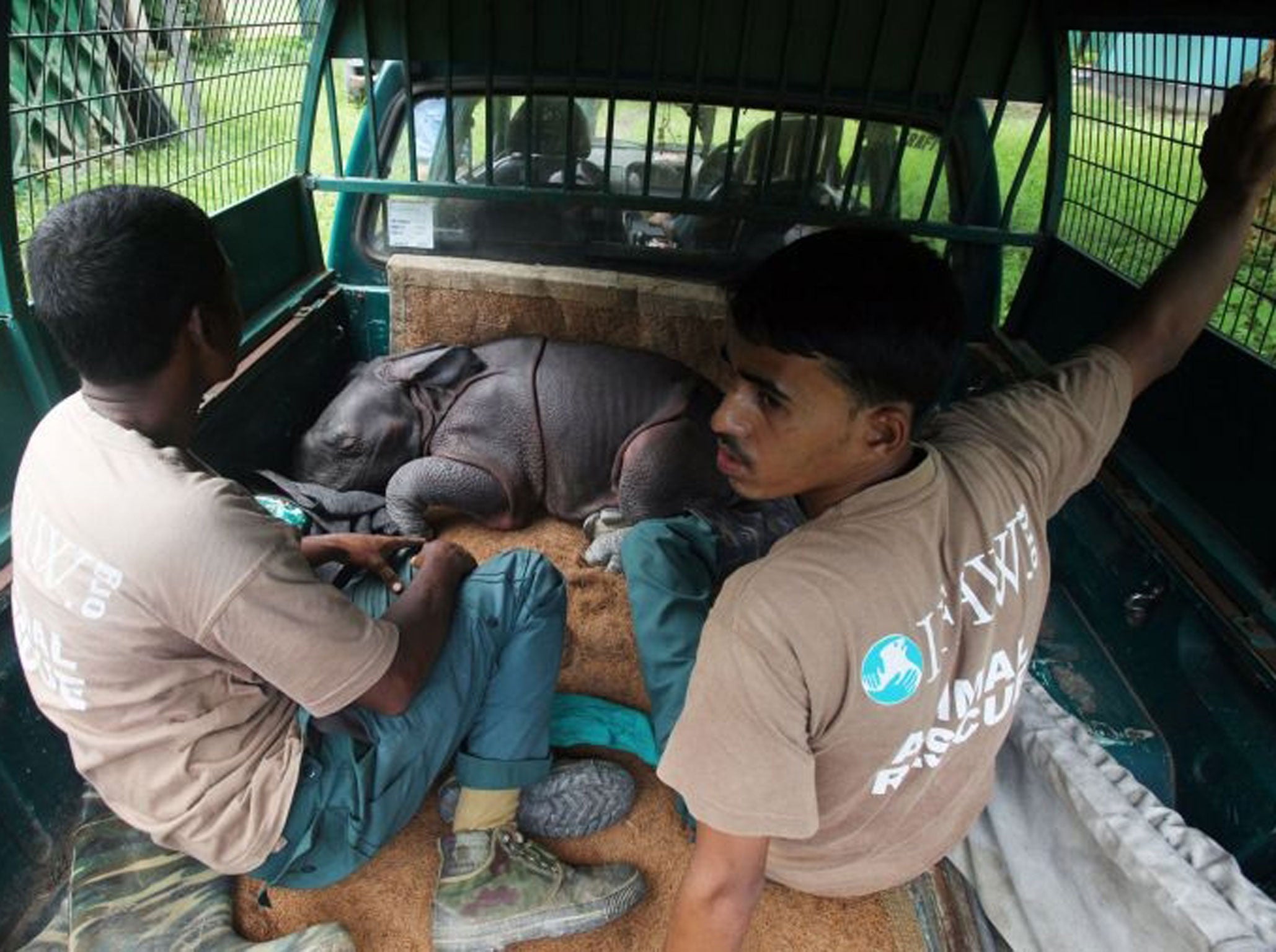Baby rhinoceros found wandering alone in India's Kaziranga National Park saved by wildlife officials
The whereabouts of the baby's mother are unknown

Wildlife officials have saved a rare newborn rhinoceros, which was discovered alone in an Indian national park.
The three-day-old male rhinocerous was discovered wandering in the Kaziranga National Park.
Images of the operation show the vulnerable creature being transported through the park in north-eastern Assam state.
The 430-square-kilometre (166-square-mile) Kaziranga park is the habitat for the world’s largest concentration of one-horned rhinoceroses.
The baby rhino was found wandering alone (Image: AFP)

The whereabouts of the calf’s mother is unknown, sparking fears she may have become a victim of the poaching problem in Kazaringa.
At least 12 rhinoceroses have been killed by poachers in the park since the start of 2015, BBC News reported citing local media.
Kaziranga is a Unesco World Heritage site. Undisturbed by humans, it is also home to tigers, elephants, panthers and bears, and thousands of birds.
Join our commenting forum
Join thought-provoking conversations, follow other Independent readers and see their replies
Comments